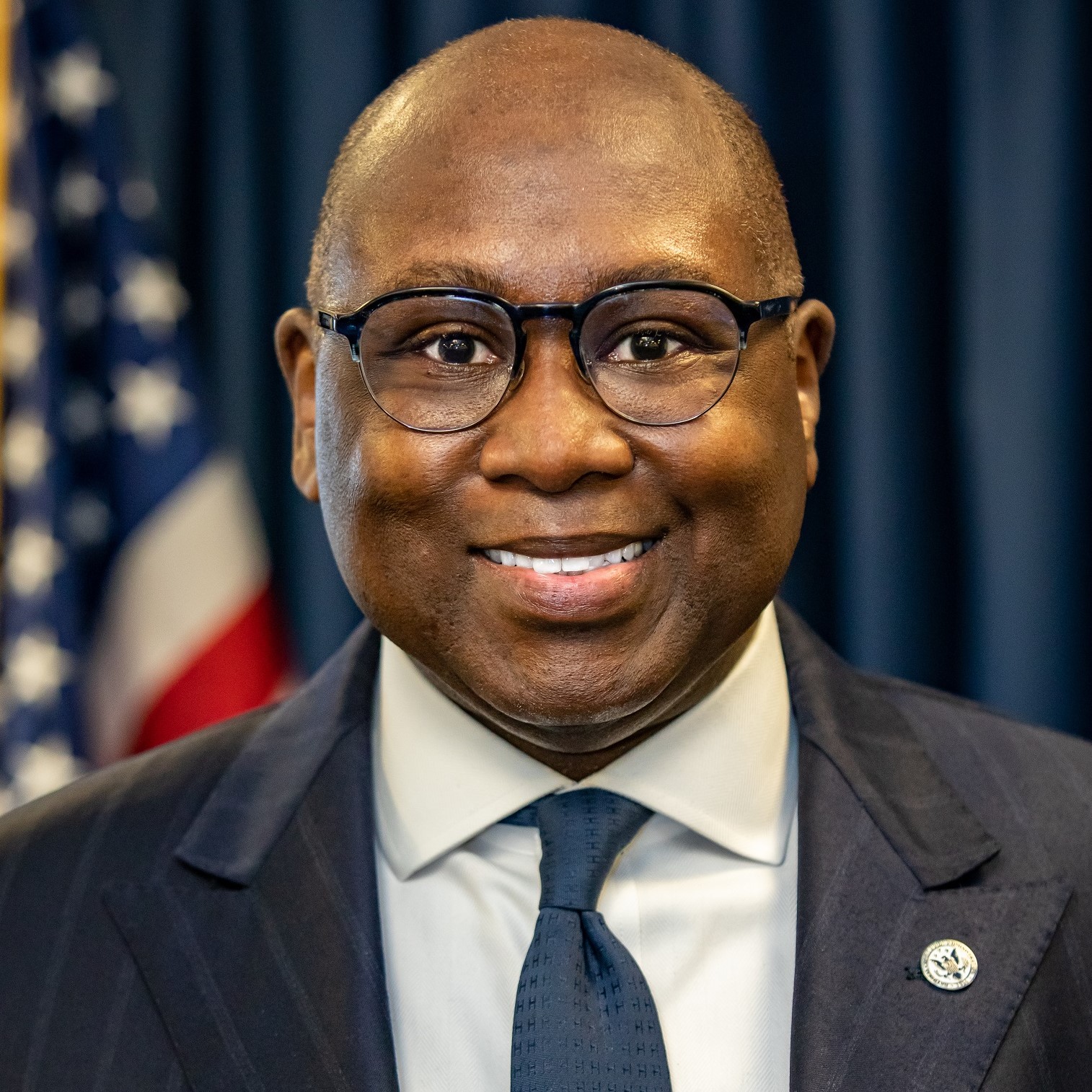Recap: The Role of Policy in ESG
As the discussion around stakeholder capitalism continues to percolate, the utility of environmental, social and governance issues remains a topic of heavy debate. If ESG’s general objectives are to be met, the broadness of the topic ensures that both the private and public sectors will need to play a sizable role.
One panel at the Kenan Institute’s Frontiers of Business: The Promise and Peril of Stakeholder Capitalism conference earlier this year focused on these issues, examining recent ESG-related legislation as well as what role governments can play. Panel member Rodney E. Hood is a National Credit Union Administration board member, has served on the board during four presidential administrations and was chairman from 2019 to 2021. He has also been a corporate responsibility manager for JPMorgan Chase & Co. Hood offered his perspective based on his decades of work across the private and public sector.
His comments have been edited and condensed for clarity.
On embracing a broader definition of diversity:

Rodney E. Hood: One of the things that I’m doing a lot of these days is taking a broad look at diversity – low- and moderate-income communities, tribal and rural communities, the differently abled communities. How do we really make sure that we are bringing in a pipeline of individuals into the workforce who perhaps have never been? How are we also looking at first-generation college students? Are we also bringing them into the workforce and giving them the training and development that they need to really have good careers? [Right now], one of the things we’re doing is … a number of outreach summits to really attract talent around the sustainability piece. And those institutions that are not embracing these tenets, I don’t think they’re going to be able to get some of the wonderful talent that’s about to graduate. So that’s one of the reasons that we are being really proactive in our outreach.
All of this is to say that I’m trying to broaden the dialogue around what diversity means. I was outside of Napa Valley at a conference, and someone from one of the cannabis dispensaries came to me to say that his loan was denied. And it wasn’t because of his credit, it wasn’t because of his lack of a down payment. It was because the banking entity said, “Well, we don’t like to do business with people who work for cannabis companies.” Cannabis is now legal in 38 states. It is now being tested and proven around the country that these are viable jobs. So, when I talk about sustainability, the diversity, equity and inclusion, I’m focused on bringing in segments that people perhaps never think about when they’re looking at diversity. They tend to think [only] about race and ethnicity. And as you all know, it’s far broader than that.
On the risks of change in the Inflation Reduction Act if a new administration enters the White House:

Hood: As someone who works hand in hand with my peers from the other regulatory bodies – the FDIC, the [Office of the Comptroller of the Currency], the Federal Reserve and some of the other entities – it is harder for those individuals, the regulators, to change when an administration changes. In fact, we all have staggered terms. I was able to serve as vice chairman of the NCUA in the Bush administration and I overlapped with the Obama administration. Later on, President Trump appointed me as chair, and now I’m still serving with the Biden administration.
You do not want the regulators leaving every four years. I think that would create such a regulatory vacuum. When I meet with my peers from the SEC, we don’t really talk about political orthodoxy. We talk about what’s good for the end user, what’s good for the consumer. So, yes, this issue has become heavily politicized, with folks running for office. And I do think the White House can dictate whichever policy it desires. But as a financial regulator, I look not at the politics but what makes the most sense for the communities that we really want to serve.
On the effectiveness of existing ESG-related policies:

Hood: I believe regulation needs to be effective and not excessive. How do we do that in today’s environment?
To really address these issues, I want it to be a bottom-up approach. I do not want government coming in and telling what the entities need to do. We oversee nearly 5,000 institutions that range from about $300,000 to $140 billion in assets. So they’re going to be looking at this from differing perspectives. And again, how do I just give them the regulatory flexibility to serve their members while still keeping a very safe and sound credit union system?
On coming up with broadly accepted definition for ESG standards:

Hood: When I was at an event in New York at the United Nations, everyone [discussing the topic] had different terminology. So unless there is a nomenclature that has been codified and solidified, how on earth are we ever going to be able to measure how well we’re using it through different terms and lenses?
- Keyword(s):
- esg 47
- policy 25
- stakeholder capitalism 57